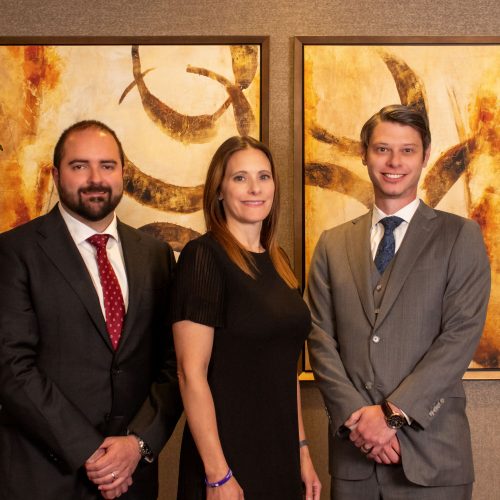Litigation Alert: The Consumer Fraud Act: Has the New Jersey Supreme Court Expanded its Reach?
In Sun Chemical Corp. v. Fike Corp., the court applied both the Consumer Fraud Act and the Products Liability Act
1/21/2021
The New Jersey Consumer Fraud Act (CFA) has been applied by our courts to provide protection to a “consumer,” as that is defined by the Act. It protects a consumer from various types of fraud such as fraudulent sales of consumer goods by a business and deceptive practices by contractors.
The CFA prohibits merchants, contractors, and other sellers of goods or services from using deceptive practices in the sales of goods or services to consumers. The deceptive practice need not be express—it can be an omission of information. The false information, in some cases, need not even be intentional if it misled the consumer. The CFA can also protect a business, because a business can also be a “consumer” under the Act.
The CFA can have a significant impact on a business that finds itself defending such a claim. If a business is found to have violated the CFA, it will have to pay the plaintiff/consumer three times the damages and pay its own and the consumer’s attorney’s fees and litigation costs.
Recently, the Supreme Court of New Jersey has clarified the applicability of the CFA where the Products Liability Act (PLA), which governs claims related to alleged defects in the manufacture, design, or warnings of a product, could also apply. In Sun Chemical Corp. v. Fike Corp., 243 N.J. 319 (2020), the New Jersey Supreme Court held that a CFA claim based on allegations that the defendant, the Fike Corporation, made misrepresentations with respect to its explosion/fire suppression system can be brought even if the claim was otherwise governed by the PLA. Prior to the Sun Chemical Corp. case, the applicability of the PLA precluded a plaintiff from bringing other tort or statutory claims based on a product’s defect.
As a result of the Sun Chemical Corp. ruling, a seller or manufacturer of an alleged defective product may now have liability under the CFA even if the PLA is also applicable, exposing the manufacturer or seller of a product to legal fees and treble damages. However, the Supreme Court in the Sun Chemical Corp. case did not suggest that a product liability case automatically opens the door for a consumer fraud claim. If a conflict exists between the PLA and CFA, the CFA will not apply. This means that an attorney should closely scrutinize the plaintiff’s CFA claim to attempt to show that it does not apply or is in conflict with the PLA because there was no “affirmative misrepresentation,” as is required to sustain a CFA claim pursuant to the Sun Chemical Corp. case.
In the Sun Chemical Corp. case, Sun Chemical brought a CFA claim against the Fike Corporation when a system meant to suppress a fire or explosion purchased from Fike Corporation failed to sound an audible alarm and prevent an explosion at Sun’s facility. The explosion caused harm to Sun’s property and employees. Fike Corporation sought to dismiss Sun Chemical’s complaint on the grounds that the PLA provided the exclusive remedy for Sun Chemical’s damages and therefore the CFA claim had to be dismissed.
The court allowed the CFA claim because of the representations alleged to have been made by Fike Corp. to Sun Chemical about what the product sold would do. Since Sun Chemical alleged that the product sold by Fike Corp. to Sun Chemical did not do what Fike Corp. represented, causing damage to Sun Chemical, the Court allowed the CFA claim to proceed, opening the door to treble damages and the payment of Sun Chemical’s legal fees by Fike Corp.
The court’s decision in Sun Chemical Corporation may expose sellers or manufacturers to additional claims under the CFA that are not precluded by other statutes like the PLA. Careful scrutiny to the CFA claims will be needed to attempt to defeat its application.
The attorneys in Brach Eichler’s litigation department are well versed in both the CFA and PLA and can provide both consumers and sellers with the expertise needed to properly prosecute or defend these claims. If you are a consumer who has been harmed by a defective product, or if you are a seller/manufacturer facing claims of selling a defective product, please contact:
Rose A. Suriano, Esq., Member and Co-Chair, Litigation Practice, at rsuriano@bracheichler.com or 973-403-3129












